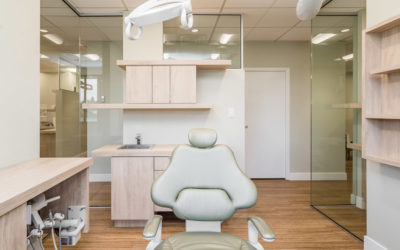Pregnancy and Teeth
The change in hormones during pregnancy puts you at a greater risk for gum disease and poor oral health in general, so it is important to pay extra care to your oral health (along with your overall health) when you are pregnant. Here are some common oral health issues in pregnant women and some simple measures you can take to improve them.
Common Oral Health Problems During Pregnancy
Gum Disease and Infection
When you are pregnant, you are more susceptible to gingivitis (gum disease) and periodontitis (an infection of the gums that damages the jawbone). Gingivitis usually occurs anytime between the third and ninth month of pregnancy.
Periodontitis may be related to delivering low-weight and premature infants, but there has not yet been enough research conducted on this to say for sure whether it is true or how exactly it works.
To minimize the risk of gum disease and infection, go in for regular cleanings and checkups during your pregnancy.
Calcium Deficiency
Your baby needs calcium to form bones and teeth. That calcium comes from your body, so if you don’t add extra calcium to your diet, your tooth and bone health will suffer. Take a multivitamin that contains iron and folic acid and eat foods rich in the following:
- Calcium
- Vitamin D
- Vitamin A
- Vitamin C
- Protein
- Phosphorous
Worn Enamel
Morning sickness can cause your tooth enamel to wear away (because your teeth are exposed to stomach acid from vomiting). Use an enamel-building toothpaste if you are experiencing a lot of nausea.
Pregnancy Tumours
Don’t let the name scare you! Pregnancy tumours are harmless.They are small growths that form between the teeth during pregnancy, most commonly during the second trimester. The tumours can be a little uncomfortable, but often you won’t even feel them. They are a completely normal occurrence during pregnancy and generally go away on their own after childbirth.
Tips for Oral Health While Pregnant
- Use fluoride toothpaste
- Brush your teeth twice a day and floss at least once a day
- Avoid sugary drinks
- Switch to a soft-bristled toothbrush to prevent gum irritation
- Go in for your regular dental checkups/hygiene appointments
- This one goes without saying (but we’re saying it anyway!): avoid smoking and tobacco products, recreational drug use, and alcohol consumption throughout pregnancy
Toothache During Pregnancy
Most pregnancy oral health problems go away on their own after childbirth if you follow the steps outlined above.
It is still safe (and recommended!) that you go to your dentist for checkups and cleanings during pregnancy, just make sure that you let your dentist know that you are pregnant beforehand. X-rays are also safe during pregnancy. The lead apron your dentist provides will protect both you and your baby. Get in touch with us today to book a checkup.




